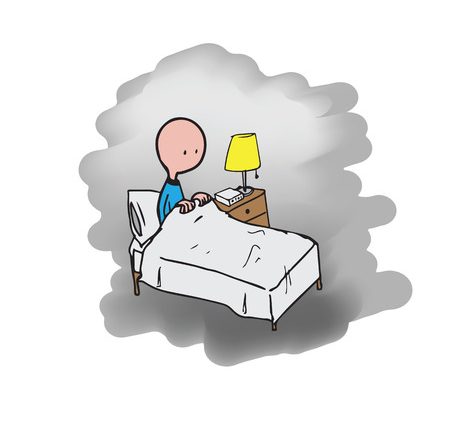Dyspraxic Sleep Problems
I think it is my dyspraxia that curses me with the double whammy of needing a lot of sleep and having trouble sleeping. I need a good 8 1/2 or 9 hours sleep a night to keep me at my best. If I stay up late or get interrupted sleep it can take a few days to get back on my game. Some sites suggest dyspraxics sleep more than others as they need the down time to process the day.
Creating an environment for sleep
Like most people, I like a quiet dark place to sleep. Ideally, I’d like the room to be totally dark, darker than the blackout liners make it. In summer I wear an eye mask to help with this. By quiet I mean silent. At home, my room is quiet enough but whenever I travel I take ear plugs. I find earplugs uncomfortable if kept in all night (I’ve tried all sorts of types, shapes and sizes) but it is better than not sleeping.
Just the dark and quiet factors can make travel challenging. However, there is also an evolutionary challenge for getting a good nights sleep when not at home. There is a thing called “the first night effect” which basically means in an unfamiliar place the brain stays alert in case the place is unsafe. Scientists showed an “enhanced evoked brain response” to unusual sounds and other “deviant external stimuli” in people sleeping somewhere new. Enhanced brain response is not what I want when I’m trying to sleep. For me, this effect lasts much longer than the first night.
My dyspraxic sleep needs do not stop and complete absence of sound and light, I also need just the right bed. My long suffering wife thinks I am worse than the Princess and the pea as I need the bed sheets just right. Stitches in the wrong place, creases or heaven forbid crumbs from a romantic breakfast in bed decimate my chances of sleep. Apparently, this is called dyspraxic tactile defensiveness.
If the bed sheets are just so, the room is silent and absent of light I might be able to get to sleep if I can overcome just one more environmental factor. The room needs to be the right temperature. Just like Goldilocks, I can’t settle for too hot or too cold. Temperature sensitivity is a little discussed dyspraxic challenge. This is normally resolved by poking various body parts out from under the covers until I start to feel too cold and then selectively retracting limbs into the warm embrace of the sheets. It’s rare that I’m cold.
Getting in the right head space for sleep
Once I have got the environment conquered it’s all down to me. That does not make it any easier. My dyslexic/dyspraxic brain often frequently does not realise it is time to wind down. If provoked in the night it will use that as an opportunity to start processing through whatever it wants to. This can occasionally be a blessing as it solves problems I’ve been grappling with but often it is just an inconvenience at 3am.
I have a trio of techniques to quieten the mind. The first is having a structured sleep pattern. I go to bed every night at 10 and get up every morning at 7. I try to stick to this as much as I can.
The second is writing stuff down. I have coached my mind to know if something goes into my Journal then I’ll review it so it can let go. This can work well if my mind is whirring on a loop in the hope I won’t forget something. Though blurry eyed in the middle of the night it can be a challenge to write legibly.
The final defence is a guided meditation. When my brain is trying to work through something and writing it down does not cut it, then meditation might. I picture myself on a busy train platform watching the people representing my thoughts scurry. Gradually they all board trains or exit the platform leaving just me sitting there. A majestic steam train arrives and I board. Within seconds I’m travelling over a bridge across a valley with stunning views to both sides. I take in the views and (hopefully) drift off to sleep.
When it all goes wrong and I don’t sleep it has significant effects on me. It starts with feeling like I am not firing on all cylinders. Then I have trouble thinking and concentrating. If I get really down on my sleep I’ll get headaches that won’t shift. It’s even been suggested I can be short tempered and grumpy when sleep deprived. I still have techniques to help me get through the day . Sometimes I just long for a good nights sleep.


Pingback: How what you eat can change how you think – Differently Wired
Pingback: Getting Quality Sleep – Differently Wired